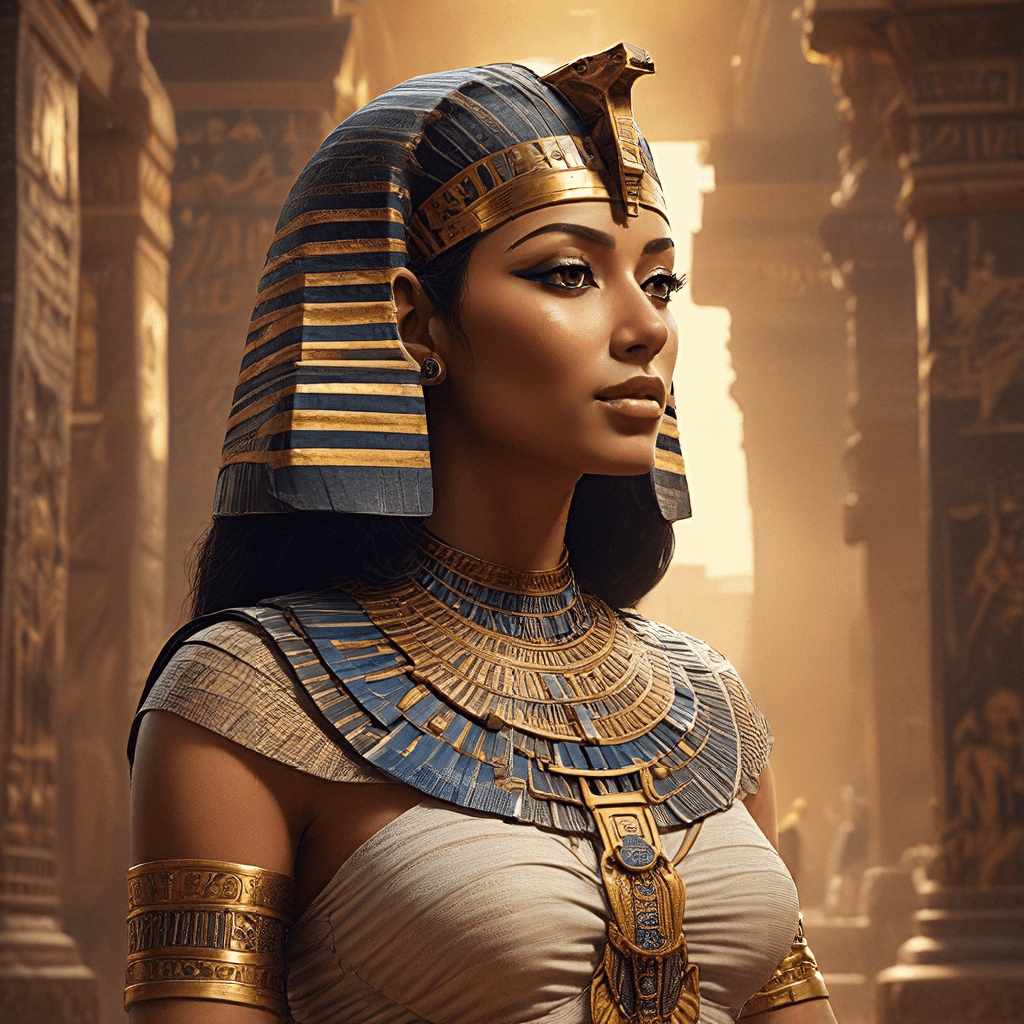My Mummy Told Me: The Secrets of Ancient Egyptian Magic
1. Introduction: The Magic of Ancient Egypt
Imagine a world where magic wasn’t just in stories, but a part of everyday life. That’s what ancient Egypt was like! Egyptians believed that magic was everywhere, a powerful force that could protect, heal, and even help them connect with the gods. They used magic for many things, from protecting their homes and crops to ensuring a good afterlife. They believed that the power of words, rituals, and special objects could influence the world around them.
2. Gods and Goddesses: The Divine Source of Magic
Ancient Egyptian magic was closely tied to their gods and goddesses. They believed these powerful beings held the ultimate source of magical power and could grant favors or bestow curses. The Egyptian pantheon included a vast array of deities, each with their own unique abilities and domains. For example, the god Thoth was the god of wisdom, magic, and writing, while the goddess Isis was known for her healing powers and protection. People would pray to specific gods and goddesses, offering them gifts and performing rituals to gain their favor and access their magical powers.
3. The Power of Words and Rituals
Words were incredibly powerful in ancient Egypt! They believed that speaking the right words in the right way could influence events and summon magical energies. Magical spells and incantations were used for a variety of purposes, from healing the sick to warding off evil spirits. The Egyptians used a special language called “hieroglyphics” for writing their spells, which they believed held even more magical power. Rituals were another key part of Egyptian magic. These ceremonies, often performed in temples or at home, involved specific movements, gestures, and offerings, all designed to harness magical energies. The Egyptians believed that by performing these rituals correctly, they could influence the gods and achieve their desired outcomes.
4. Amulets and Talismans: Magic in Everyday Life
Egyptians wore amulets and talismans for protection and good luck. These magical objects were often made of precious materials like gold, silver, or stones, and were inscribed with powerful symbols or images of gods and goddesses. They believed that these objects could ward off evil spirits, bring good fortune, or even cure illness. Some popular amulets included the scarab beetle, which symbolized rebirth and renewal, and the Eye of Horus, believed to protect against evil. Egyptians even used magic to protect their homes and belongings. They placed magical objects and spells in their homes to ward off evil spirits and ensure prosperity. The power of belief was key to the effectiveness of these objects. Egyptians believed that the amulets and talismans would work, and this belief itself had a powerful effect.
5. The Secrets of the Pharaohs: Royal Magic
The pharaoh, the king of Egypt, was seen as a divine figure, a link between the earthly realm and the gods. They were believed to possess magical abilities and had a special connection to the divine. The pharaoh’s power and authority were reinforced by elaborate rituals and ceremonies. These included offerings to the gods, processions, and magical performances. The pharaoh was also believed to have the power to heal people with their touch, a gift directly from the gods. The pharaoh’s magical powers were seen as essential to the well-being of Egypt and its people. They were responsible for maintaining harmony between the human and divine realms, protecting the land from evil, and ensuring the prosperity of the kingdom.
6. The Importance of the Afterlife: Magic and the Journey Beyond
The ancient Egyptians believed in a life after death and put a lot of effort into preparing for it. They believed that the soul would embark on a journey to the afterlife, and magic played a crucial role in ensuring a safe and successful passage. Magical rituals and spells were used to ward off dangers and guide the soul through the underworld. The Egyptians also used magic to protect the bodies of the deceased. They carefully mummified their dead, using spells and rituals to preserve the body and ensure that the soul would be able to return to it in the afterlife.
7. The Role of Priests and Magic
Priests played a vital role in ancient Egyptian society. They were seen as intermediaries between the gods and the people, and they were responsible for performing rituals, interpreting dreams, and offering guidance. Priests were experts in magic, and they used their knowledge to heal the sick, protect the community from evil, and ensure the well-being of the kingdom. They were also responsible for maintaining the temples and performing rituals related to the pharaoh and the gods.
8. The Magic of Nature: The Power of Animals, Plants and the Elements
The ancient Egyptians revered nature and its forces, believing them to hold immense magical power. Animals were often seen as symbols of gods and goddesses, and their behaviors were interpreted as messages from the divine. For instance, the falcon was associated with the god Horus, while the scarab beetle represented the god Khepri. Plants were used for healing and protection. They believed that different plants had specific magical properties. Herbs were used for making potions and remedies, while flowers were used in offerings and rituals. The elements – fire, water, air, and earth – were also seen as powerful forces that could be harnessed for magic. The Egyptians believed that by understanding and respecting the forces of nature, they could tap into its immense power and influence the world around them.




